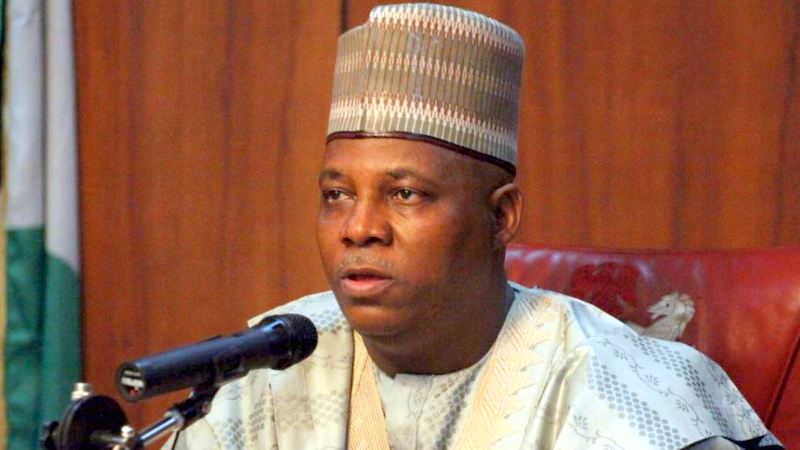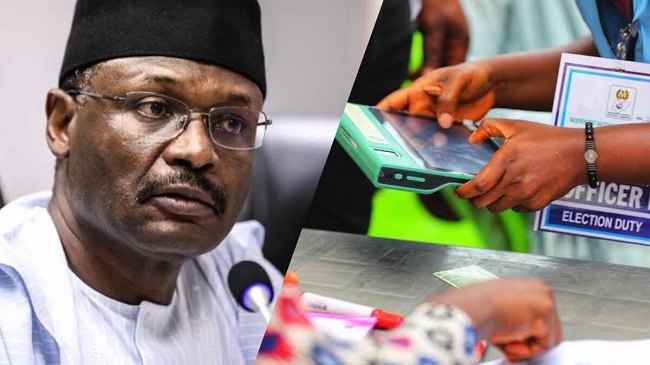History: Tinubu: Why Abiola Muslim-Muslim Ticket Scenario will fail in 2023
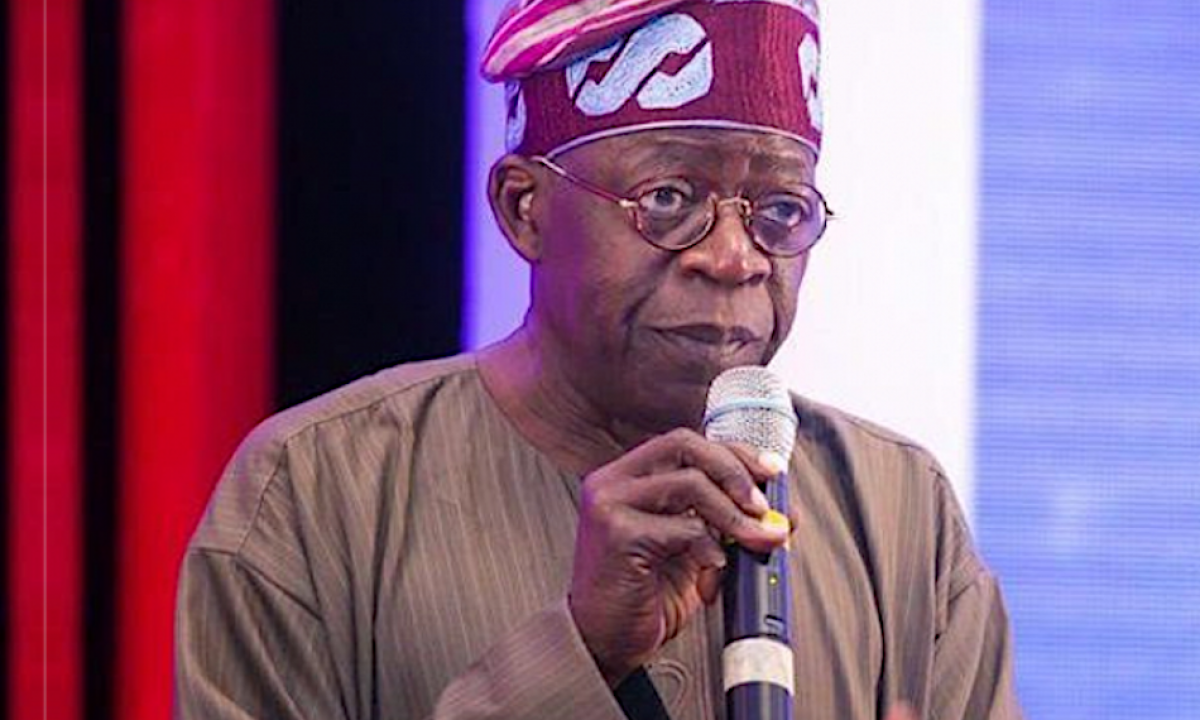
Theophilus Abbah
In Nigeria’s presidential election, any political party that flies a ticket in which the presidential and vice-presidential candidates are of one religion squarely consolidates the marginalization of either of the two dominant faith – Christianity and Islam – in the political space. In the history of the country’s leadership, since 1979 (both civilian and military), Muslim-Christian or Christian-Muslim pairs have been consistently adhered to. The temptation for a presidential flagbearer to ignore this dogmatically emerges where a Muslim from the southern half of the country eyes the presidency, similar to what happened in 1993 when the late Moshood Abiola grabbed the Social Democratic Party (SDP) ticket and ran the race with Ambassador Babagana Kingibe as his pair. As the clock ticks in the race to 2023, handlers of Bola Tinubu share the courage that if Abiola could win in 1993 with a Muslim-Muslim ticket, it means Tinubu can repeat history by using the same strategy to pull through for the big prize next year. So, under what circumstances did Abiola contest with Kingibe as his running mate? How did the race end?
He did not win the 1993 election because his running mate was a northern Muslim; he won because of the seed he had sown among Muslims and Christians, without recourse to religion.
In the 1993 presidential election, a political concept tagged Option A4 was invoked by the military government of Ibrahim Babangida. Using the open ballot system, aspirants for the presidency had to test their popularity from their local government, through the state before facing the ultimate challenge in their parties’ primary elections. At the SDP primary election in March 1993, as many as 28 presidential aspirants had crossed the hurdle from their states and converged on Jos for the party’s ticket. There were political groups that morphed into SDP. One of the strongest of the groups was the Peoples Front of Nigeria, called PF, and also known as the Yaradua Group. The late Shehu Musa Yar’adua, a former chief of army staff under the military government of Chief Olusegun Obasanjo from 1976 to 1979, had built a solid political network, from North to South. The PF became a very strong wing of the SDP. Another arm of the party was made up of powerful SDP state governors. Chief Abiola, a multibillionaire media mogul, arrived in the contest with the weight of his wealth and popularity across Nigeria. In the primary election, Ambassador Kingibe, the party’s erstwhile National Chairman, was believed to have the backing of SDP governors who were beholden to him as their leader. Chief Abiola came in with his crowd from the South-West, while the Yar’adua Group supported Alhaji Atiku Abubakar for the presidency.
Though there were Christians from North and South in the elections, like Chief Ralph Obiora from the South-East and Professor Jerry Gana from the North, who contested in the primary election at the National Convention in Jos, the three top runners were Muslim. Chief Abiola from Ogun State polled 3,617 votes; Ambassador Kingibe from Borno got 3,225 votes, while Atiku Abubakar from Adamawa got 2,066 votes. The party had to conduct another round of primary elections for the three leading contenders. In this second round, Atiku stepped down for Chief Abiola who came top with 2,683 votes to Kingibe’s 2,456.
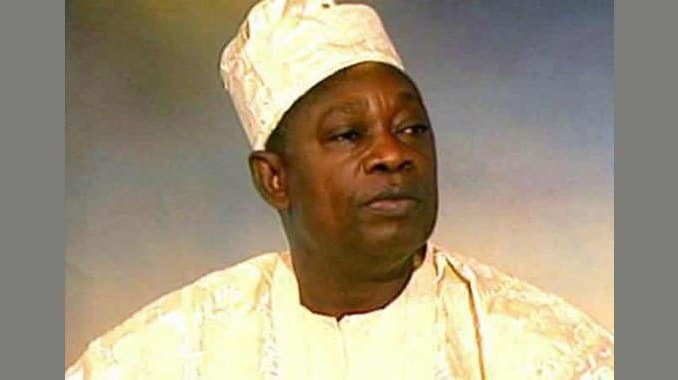
M.K.O Abiola
Abiola’s dilemma:
After clinching the party’s ticket, Chief Abiola was in dilemma as to who he should choose as his running mate. Under what was considered a gentleman’s agreement between Abiola and the Yar’Adua Group, Chief Abiola was to choose Atiku as his running mate. But, holding the ticket, it dawned on Abiola that the choice of the running mate could make or mar his ambition to be president. First, he must be seen to be a reliable politician. In that case, he should go for Atiku Abubakar. Secondly, he must not be seen to be injuring the sensibility of the Christian half of Nigeria. In fact, the Christian Association of Nigeria (CAN) had cried out over to fact that Muslim candidates were flagbearers of the National Republic Convention (NRC) and SDP. Abiola did not lack Christians who were politically active from the North to choose from. There was Jonathan Zwingina, his astute political associate, Chief Solomon Lar, the governor of Plateau State, Professor Jerry Gana, an influential minister and presidential aspirant, and Air Commodore Dan Suleiman, a former governor of Plateau State, and several others. But the third question was, how would state governors who supported Kingibe react if he picked another candidate in which they had no interest? Then, Abiola still wondered if he would garner support from the Muslim North if he picked a Christian running mate? This question raged on in his mind, considering the fact that his opponent, Bashir Tofa, a Kanuri, was a Muslim North from Kano.
In his book: Atiku: The Story of Atiku Abubakar, Adinoyi Ojo Onukaba, revealed that Abiola, in an attempt to deal with the jigsaw, took this predicament to Babangida. Abiola was said to have taken a list containing Air Commodore Dan Suleiman, Pascal Bafyau, Kingibe, Atiku, Boss Mustapha, and Bala Takaya to IBB. Onukaba writes thus: “Abiola told his close aides that on seeing the names, Babangida advised him to take Bafyau…Babangida was said to have described Suleiman as “a sick man”, (that he does not enjoy good health). Kingibe, the president was said to have told Abiola, would [not want anything apart from the presidency] because he never wanted to be Vice President.” As for Atiku, Babangida was alleged to have said that making him Vice President would be the same as having Yar’Adua there. Abiola returned from Abuja ready to announce Bafyau as his deputy on May Day 1993. He instructed Zwingina to break the good news to the labour leader. Zwingina did, congratulating Bafyau and his wife… But Abiola soon found Bafyau difficult to sell to his supporters…” (P.213). It is not clear what Abiola meant, because, at the time Bafyau was the leader of the Nigeria Labour Congress (NLC) a powerful bloc in Nigeria.
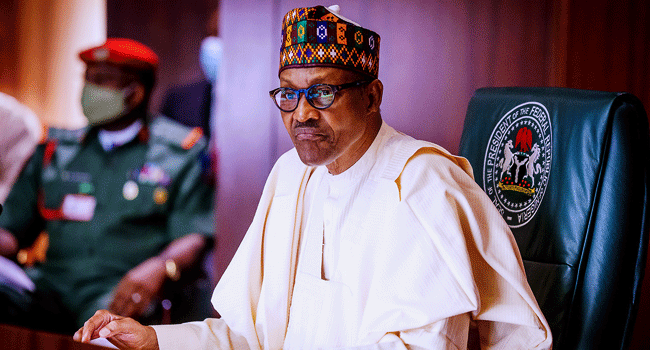
President Muhammadu Buhari
Chief Abiola chose Kingibe as his running mate for two reasons – he thought Kingibe would sell him to Muslim-North and win the support of SDP governors. Though Abiola won the popular vote of 8,341,309 to Bashir Tofa’s 5,952,087, it was not very clear if his choice of a Muslim as his running mate was responsible for that victory. Abiola was said to have later regretted the decision, as he lamented that he should have picked Air Commodore Dan Suleiman as his running mate instead of Kingibe. In his analysis, Chief Wole Olaoye said, “We know that the typical voter in the Muslim North would rather vote for a Muslim (Bashir Tofa) instead of Abiola. But, because of his philanthropy, Abiola would still have won the election if he had picked a Christian running mate. Abiola was a detribalized Nigerian who had goodwill from North to South. He did not win the 1993 election because his running mate was a northern Muslim; he won because of the seed he had sown among Muslims and Christians, without recourse to religion. Even if northern Muslims had not voted for him, remember we have a large population of indigenous Christians in the North, in states like Kaduna, Bauchi, Gombe, Adamawa, Taraba, and Kebbi. Votes from that segment of the population and the larger South could have delivered the presidency to Abiola. ”
Another insider in Abiola’s Hope ‘93 campaign said, “Abiola was actually pressurized to pick Kingibe as running mate; he was told that SDP governors would not fund his campaign if he didn’t choose Kingibe. And he regretted it. This assumption that northern Christians in politics have no electoral value is not scientific. In 2011, Buhari who hails from Katsina, contested against Goodluck Jonathan from the South. In spite of his cult-like support from the northern talakawa, Buhari suffered defeat. The notion that only candidates supported by Muslim-North could win presidential elections in Nigeria is a myth.”
Perhaps, in 1993, religion was not considered a very significant factor in political leadership. But in 2023, religion will determine how the people will vote.
If it happened in 1993, would a Muslim-Muslim ticket win in the 2023 presidential election? Dr. Jideofor Adibe, a lecturer at Nasarawa State University, Keffi argues that it is possible for a Muslim-Muslim ticket to win the presidential election. “A Muslim-Muslim ticket can win in 2023, but that victory will be Pyrrhic. It will not be a comfortable victory because there must be justice, fairness, equity, and inclusive political leadership for us to consider it a successful victory. A candidate could say ‘hell will not let loose if the president and vice-president are of one religious persuasion,’ but it could cause a legitimacy crisis, where the alienated religious group would feel seriously injured. In Kaduna State, Governor Nasir El-Rufai did it in 2019, but it has left Kaduna in crisis. The people of Southern Kaduna feel alienated. Unfortunately, the crisis in Kaduna State at the moment is unprecedented in the history of the leadership of the state. We cannot shy away from the fact that el-Rufai’s ‘what can you do?’ Muslim-Muslim governorship plays a role in the ongoing mayhem in Kaduna.”
Perhaps, in 1993, religion was not considered a very significant factor in political leadership. But in 2023, religion will determine how the people will vote, considering the outcry all over the country about marginalization along ethnic and religious lines under the eight years of President Muhammadu Buhari. Worse still, a Muslim-Muslim ticket would demonstrate how insensitive the party that makes its platform available for such a race is to the plight of the Nigerian Christian community. It is possible to predict how such a race would end.

